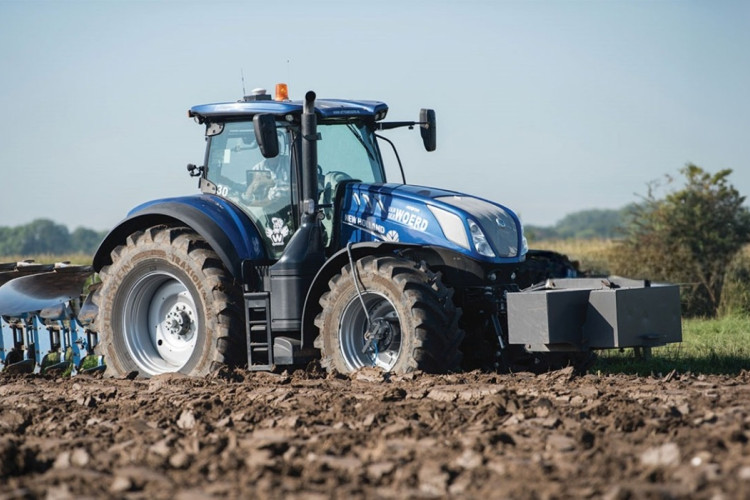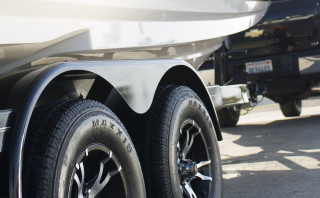The best tyres for your trailer
After spring kicks into gear a number of things happen. There’s the growing Saturday chorus of lawn mowers fighting against overgrown grass. You find yourself spending far too much time at garden centres, uttering things like “I’ve always been fond of petunias”... and the garage door is left constantly open. It also means it’s time for that boat trailer to visit the nearest testing centre for a new warrant of fitness. Chances are it hasn’t moved in months and you’ve probably never paid attention to the tyres it has on. After all, the trailer came with the boat... and the tyres were already on it. It might pay to take a look at them though…
Old Tyres, New Problems
We’re not sure of the average age of trailers in New Zealand but chances are it’s pretty old. After all, the average car is now over 14 years old. We reckon the average trailer must be older than that. Those single axle home built trailers from yesteryear are still going strong and finding something on the road from the 60’s or 70’s is not uncommon. The safety chain may have been upgraded, some LED lighting added and a few other bits... but they’re still pretty old.
The tyres are probably only ever changed when they either fail (i.e. puncture) or the friendly WOF inspector says the tread is too low. Which means they might be sitting on the trailer for years. More than a few owners might be surprised to look down and discover their tyres are 15 years old, or more. Now, the tread may be perfectly ok and within the legal limit but that doesn’t mean the tyres are free from issues.
We mention this because the UK has recently passed a law making it illegal for tyres aged 10 years or greater to be fitted to buses and coaches. This followed a fatal accident, the cause of which was the failure of a 19 year old tyre. This tyre wasn’t on a trailer but we think it serves to highlight a potential problem. A 19 year old trailer tyre may have some internal issues, invisible to the naked eye until they decide to reveal themselves as you hit 90km/h on the highway. It’s worth knowing about just in case. Especially if the boat you're towing is because you’re heading away on a family day out.
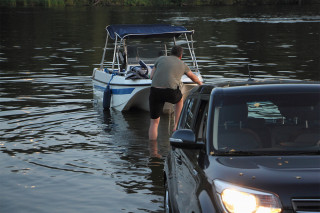
What's Important in a Trailer Tyre
Does it really matter what tyres you put on your trailer if it’s just a single axle or dual axle unbraked trailer? They’re not used the same as a drive tyre and are just just dragging along behind your ute. It can’t be that difficult a task… can it?
Radial or Bias
We’ve included this because last time you bought trailer tyres bias (or crossply) tyres were probably an option. For those that don’t know, with a bias tyre, the plies run at an angle of 35 to 40° from the centre of the tread, vs standard radial tyres which have plies running at a 90° angle from the tread centre. Bias tyres for trailers stuck around for several more decades than they did for cars as they were thought to have some benefit when it comes to trailer sway under heavy loads. But radial tyre technology has kept marching on and they’re likely not only the better construction option for your trailer tyres now, but also the only one. That's not a bad thing as they're less susceptible to flat spotting and they also tend to handle high speeds better. Here's what's really important though: if you're not replacing all the tyres at once, just make sure you have the same type all around. Mixing tyre construction is a really bad thing for vehicle stability.
Load Rating
Whatever tyre you choose (and keep in mind you really do get what you pay for with tyres) you need take a look at the load rating. This is normally found sandwiched between the tyre size and the speed rating on the tyre sidewall. It’ll be represented as a number between 62 and 126. This number is essentially a key, which you take to a chart like this then find your number and the table will reveal how much weight the tyre is good for.
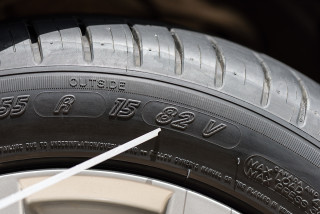
The total load rating of all the tyres on your trailer needs to meet or exceed the trailer's GVM (Gross Vehicle Mass). This is the maximum load amount the trailer can safely carry (i.e. the weight of the trailer and the boat that sits on top of it. So how do you know what the GVM is for your trailer? You should be able to look for the GVM on label, certificate or plate. Only in NZ, there's no legal requirement to have any of these. So there’s a whole heap of single axle trailers on the road and the owner will have no way of knowing what they are good for. If the GVM exceeds 2000kgs then the trailer has to be braked. Which tells you that if your trailer is unbraked you don’t exceed a 2000kg load. In reality, you probably want to get nowhere near that. Not even close.
A special note for boat owners. Adding extra fuel tanks, diving gear, boxes of food and drink is all too easy. Just remember all that added weight in the boat is added weight on the trailer and tyres. The most common fault with boat trailers is wheel bearing failure thanks to overloading. That’ll ruin a day on the lake quicker than your annoying buddy who lets the big one slip off the hook and then gets seasick, throwing up all over your new rod and reel.
How to Maintain Trailer Tyres
If you have splashed out on some new tyres then you’ll want to keep them sweet. The general maintenance is not really much different from what you’d do for your car or ute tyres.
Tyre Pressure
Few things can cause more issues to tyres yet be so simply solved at the same time. When you head out, stopping off at the petrol station to fill up the boat, take a minute to check the tyre pressure too. The right pressure will help prolong the life of the tyre by helping ensure it wears evenly.
Inspect the Tyres Regularly
Our trailers normally have a hard life. We might take them to that ‘put in point’ for a river which is accessed through a paddock. Or we load them up for a run to the dump, where there’s normally a few bits of broken glass laying around. It’s worth taking a look to make sure your tyres are holding up against the attack and are free from visible damage.
Keep Caps on Tyre Air Stems
You’ll be wanting to keep debris and moisture out of your trailer tyres. They’re not that keen on either.
Get Uneven Wear Checked Out
It could be an issue with the trailer. If tyre wear is uneven you need to get to the cause and replacing the tyres with new will just see a repeat of the problem.
Don’t Mix & Match Radial and Bias Tyres
Yep, we said this earlier too. You need to stick with one or the other. They handle differently and mixing them up will give you a nightmare time trying to keep everything in control.
Get a Spare
Otherwise you can almost guarantee you’ll be the person halfway down the Haast Pass putting an SOS out to the nearest tyreshop at 5.30 pm on Christmas Eve. The callout is expensive enough, not to mention the couple of days’ extra accommodation if there’s nothing nearby and no couriers running. Always be prepared.
Check the Age
Check the age of the tyre on the sidewall and replace anything that’s more than 10 years old. Here's how to tell the age of your tyres.
Store in a Cool, Dark Place
When it comes to off-season and parking that trailer up for winter, make sure it’s somewhere away from the ravages from weather. UV can cause tyres to wear prematurely - not so much that it’s really a problem for vehicles that do kms every week, but something you really need to be aware of for anything that’s fitted to something you only use occasionally. So park your trailer up in a garage or shed, away from direct sunlight and the elements (or under a trailer cover if it’s outdoors.
And Finally
Given the right conditions, those trailer tyres should last you a long time. We’re pretty sure most reach a ripe old age rather than get replaced due to lack of tread. Just keep an eye on them and change them if you’re in doubt. They’re pretty cheap relative to what they carry and it’s a smart move if you’re using them to transport the boat. As we all know, boats will always find a way to cost you more money and if they think they can use a trailer to inflict financial damage on you then they will. They really will.
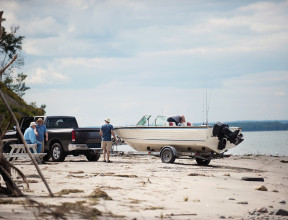
Hitting the Road this Summer?
Check your tyres and make sure you're prepared.
More tips and articles
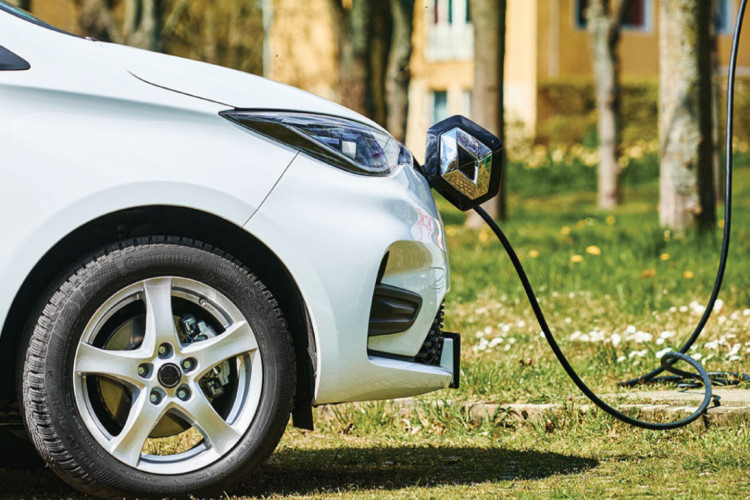
Tyres for Electric Vehicles
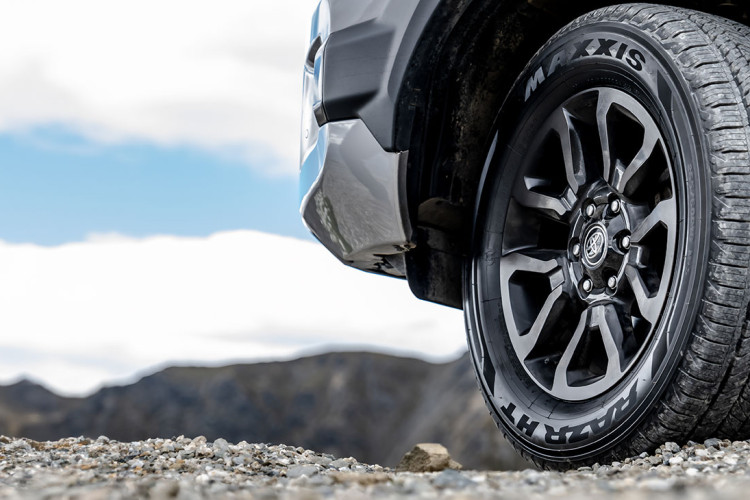
Product Spotlight:
Maxxis HT780 RAZR HT
